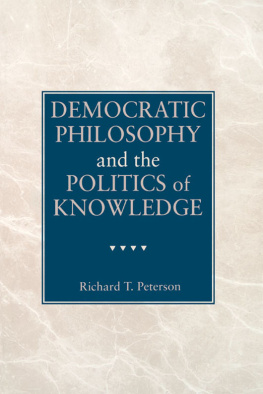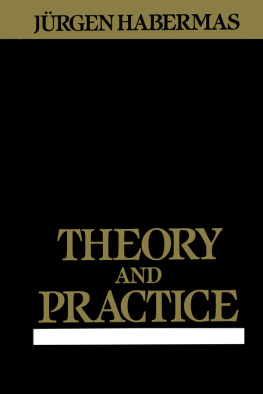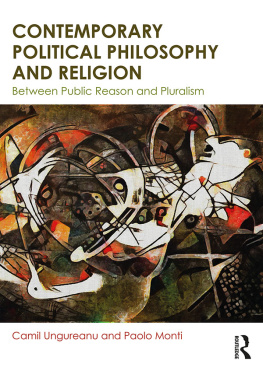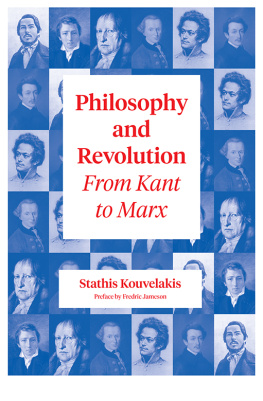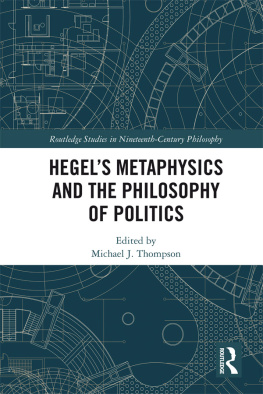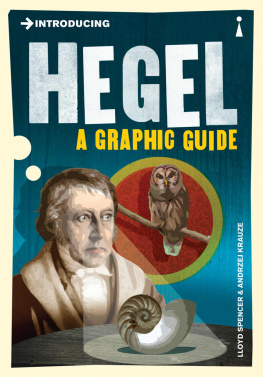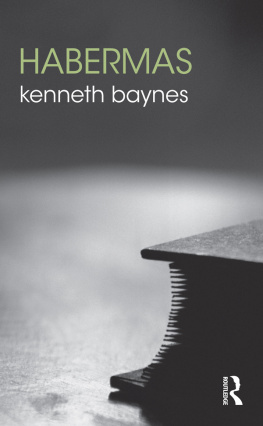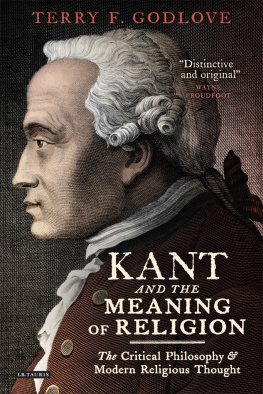Democratic Philosophy and the Politics of Knowledge
Richard T. Peterson is Professor of Philosophy at Michigan State University
Library of Congress
Cataloging-in-Publication Data
Peterson, Richard T.
Democratic philosophy and the politics of knowledge / Richard T. Peterson
p. cm.
Includes bibliographical references and index.
ISBN 0271015446 (cloth: alk. paper)
ISBN 0271015454 (pbk. : alk. paper)
1. Philosophy.
2. Democracy.
3. Liberalism.
4. Postmodernism.
5. Political science-Philosophy.
I. Title. B65.P43 1996
700.1dc20 [101] 9523637
CIP
Copyright 1996
The Pennsylvania State University
All rights reserved
Printed in the United States of America
Published by
The Pennsylvania State University Press,
University Park, PA 16802-1003
It is the policy of The Pennsylvania State University Press to use acid-free paper for the first printing of all clothbound books. Publications on uncoated stock satisfy the minimum requirements of American National Standard for Information SciencesPermanence of Paper for Printed Library Materials, ANSI Z39.481992.
CONTENTS
For Carolyn and my mother,
and in memory of my father
The influence, help, and support of many teachers and students, friends, and colleagues have left their mark on this work. Mitchell Franklin, Marvin Farber, and V. J. McGill were teachers whose insight, scholarly erudition, and political integrity showed me that a critical ideal for intellectuals still can be taken seriously. Anatole Anton preserves that spirit and has offered much helpful criticism and support. Steve Esquith has read many versions of parts of this text and has offered countless useful suggestions; his help has been invaluable. Among my colleagues in the Philosophy Department at Michigan State University, I thank especially Charles McCracken and Rich Flail for their encouragement and friendship. Clint Goodson, Roger Meiners, Mark Sullivan, Kevin Kelly, Jim McKee, and Rick Hill are colleagues at Michigan State whose insights have helped along the way. Others who have read parts of this text and generously offered suggestions include Richard Schmitt, Thomas McCarthy, Linda Alcoff, and Fred Evans. Doug Kellner and Bill Martin made helpful observations on the manuscript as a whole. Sandy Thatcher at Penn State Press has been most supportive; my copyeditor, Keith Monley, helped mightily in moving this text toward readability. Finally, I thank the many students who have been perhaps unwitting but nonetheless indispensable collaborators in developing the ideas presented here.
A Democratic Philosophy?
Is there, or should there be, such a thing as a specifically democratic approach to philosophy? The possibility or even desirability of philosophy remains a debated question. But perhaps the fact that challenges to philosophy and traditional philosophical ideas are today especially vigorous can be taken as a sign of a persisting interest in philosophical issues, an interest often pursued outside academic philosophy. Professional philosophers have themselves been affected not only by arguments in other disciplines (e.g., over method and theory in natural and social sciences, over uses of expertise in professions, over language in linguistics and literary criticism) but also by the challenges of social movements (e.g., by feminisms identification of the workings of power in language and culture, by minorities contestation of persisting inequalities and differentiation, and by ecologists claims about animal rights and the fate of the environment). Before we can draw any conclusions from the extent or nature of present philosophical activity, however, we need to have a more definite idea of what counts as philosophy as well as what relation the fate of philosophy so understood might have to politics, and particularly to democratic politics. All of these ideas remain of course highly contested. In working toward specific understandings of them, the following discussion aims to show ways that arguments about the nature of philosophy, politics, and democracy are closely interconnected.
What follows is an essay, in the literal sense of an attempt or experiment, in which I propose historical understandings of philosophy and politics and with these understandings work toward a democratic conception of philosophy. Because specialized knowledge now plays a crucial role in the language and practice of politics, philosophical reflection on knowledge has a direct, if abstract, relation to politics and to the prospects of democracy. I try to make good on this claim in a discussion that is not complete or detailed enough to warrant being called systematic, yet that is developed in the belief that the attempt to think systematically remains valuable and important. This belief goes against the grain not just of mainstream academic philosophy but also of much of the criticism of the mainstream. Rejection of systematic thinking is often confused with challenges to the intellectual errors that have made many of the ideas and aims of the philosophical tradition problematic. At this point it is premature to elaborate on what I take to be a defensible and necessary kind of systematic reflection or to anticipate my criticism of common rejections of the tradition. But in connecting these themes with the linkage of philosophy and politics I mean to imply that a certain kind of systematically oriented thinking about rationality is necessary not just for thinking about philosophical issues bearing on democracy, but for engaging in a democratic practice of philosophy itself. Moving toward an idea of such a democratic practice is a major aim of this essay.
Philosophy and Politics
To bring out more clearly the aims of the following study, I begin with the question of philosophys relation to politics. The idea that philosophy might have an inherent relation to politics or that the practice of philosophy might itself be political (that is, that there might be a specifically democratic or nondemocratic practice of philosophy) breaks with the prevailing view that philosophers should stand apart from specific social interests and conflicts, even when they are discussing political themes. This is a moral requirement as well as a claim about the conditions of successful philosophical work. On this view, philosophers who do not keep their distance from politics risk forfeiting their intellectual vocation and in any case will not contribute genuinely philosophical insights. This opposition to pursuing philosophy politically is conjoined with the historical claim that genuine philosophical achievements of the past were not directly political. If, then as now, philosophers have political motives and make politically loaded assumptions, and even if their work contributes to political realities in various ways, still, pursuing philosophy in a directly political way risks losing its distinctive intellectual achievement. Thinking that proceeds this way, proponents of this view might claim, will lead to philosophy that is either shoddy or fraudulent, and probably both.
In view of the susceptibility of intellectuals to political and economic corruption, such a resistance to politicized philosophy is compelling. Further, there are too many cases of philosophers being in over their heads when they have turned to politics (consider Plato and Heidegger) for us to have much confidence in the mixing of philosophical and political judgment. Warnings about reductionism are persuasive as well, since, if philosophy can in some way contribute to politics, it will surely be on the basis of distinctively philosophical insights. Otherwise, why bother with philosophy?

